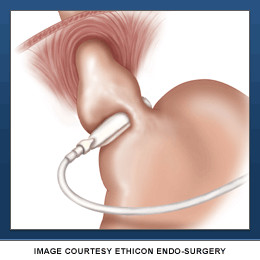Revisional Bariatric Surgery in Miami
 Have you regained weight after bariatric surgery?
Have you regained weight after bariatric surgery?
Bariatric surgery, when performed by an experienced surgeon is most often a very safe and effective long-term weight loss solution. As with any surgical procedure, however, some failures may necessitate a revisional procedure to correct a problem and return the patient to their path to weight loss.
Revisional Bariatric Surgery
Revisional procedures offer a solution to bariatric patients who have regained weight or are experiencing surgical complications. The Gastric Sleeve Center is very experienced in revisions and can guide you through the process to find out which procedure is right for you.
Before proceeding with a revisional procedure, it is imperative to determine the causes of the original procedure’s failure. To determine this, an upper endoscopy and x-rays (where the patient drinks a contrast liquid) may be required. Bariatric surgery is far more than just the procedure – it requires the patient to stick to a new and improved dietary and exercise lifestyle that is critical to the success. However, if the patient has undergone a failed operation or is experiencing serious complications, additional surgery may be right for them.
Gastric Bypass Revisions
Several of the most common reasons for failure of a gastric bypass are: a dilated gastric pouch, a dilated anastomosis between the gastric pouch and the jejunum (both may also occur) or a fistula between the gastric pouch and the old stomach may occur. At the Gastric Sleeve Center, depending on the severity of the cause, we may be able to repair the problems by endoscopically (using a gastroscope through the mouth without incisions) suturing and narrowing or closing the pouch, anastomosis or fistula. When the pouch, anastomosis, and/or fistula are very large, laparoscopic repair may be needed
Gastric Band Revisions
There are many causes for the failure of a gastric band, the most common being an intrinsic failure of the band itself. It is estimated that greater than 25% of bands will be converted to another bariatric procedure such as a gastric sleeve or gastric bypass. At the Gastric Sleeve Center, we have one of the most experienced revisional programs in the world with excellent results.
Another common reason for band failure is slippage. This may be repaired laparoscopically, or may require band removal with conversion to another bariatric procedure. Again, at the Gastric Sleeve Center, we have extensive experience in repairing slipped bands
Vertical Banded Gastroplasty (VBG), Non Adjustable Gastric Bands
VBG usually fails because of a fistula between the pouch created and the old stomach. Non Adjustable Gastric Bands fail intrinsically because of the procedure itself. These operations were done open, require a higher degree of expertise in being revised, and are at higher risks for complications and conversion to open surgery. At the Gastric Sleeve and Revisional Center, we have successfully converted of these failed VBGs and Non Adjustable Gastric Bands to Gastric Sleeves laparoscopically
The results of the revisional surgery can vary widely depending on why exactly the original surgery failed and what procedure is chosen as the revision. Generally, however, revisional surgery is successful in fixing the problems and regaining controlled and safe weight loss. Even though the revisional surgery will make weight loss easier, is still requires significant dietary and lifestyle changes, much like any other bariatric surgery or weight loss procedure.
Risks of Revisional Surgery
Revisional surgery does have risks and patients should choose a surgeon with significant revisional surgery track record. Some of the most common risks associated with revisional surgery are: Intestinal leaks, a higher conversion rate to open surgery, infection, longer hospital stays and possible failure to resolve the original issue.
And how to minimize these risks? Consult with a surgeon who is very experienced in revisional procedures and a staff that will help you choose the correct revisional surgery for you.



